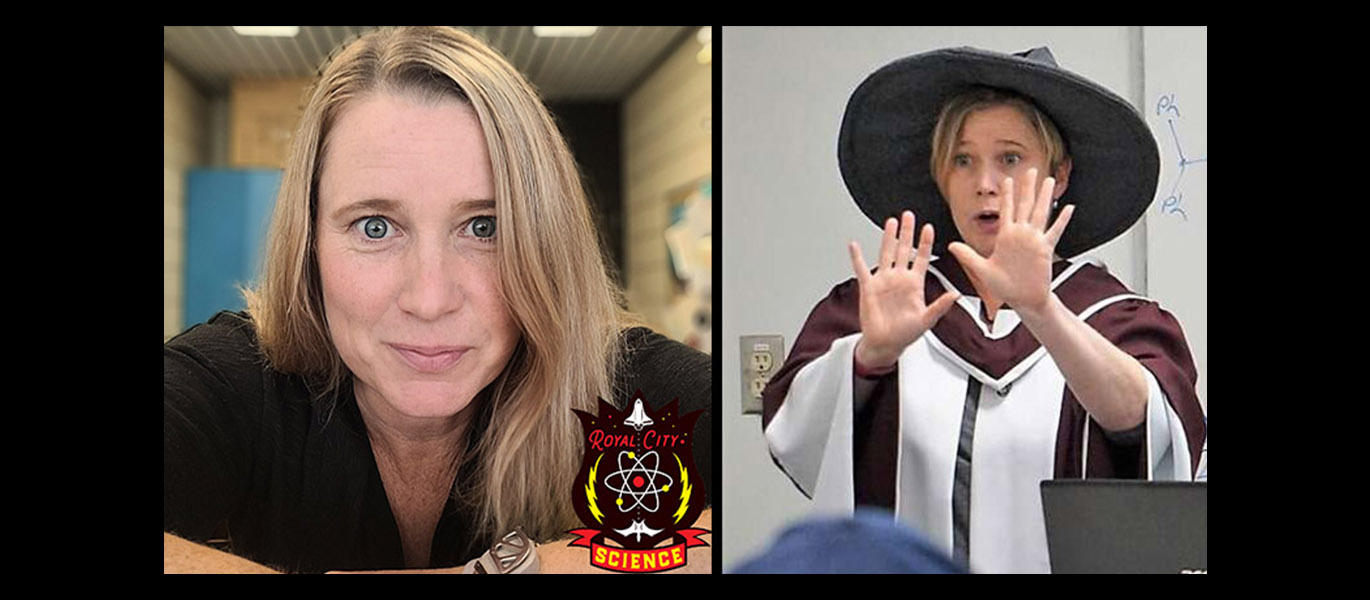As a scientist, Dr. Joanne O’Meara loves nothing more than asking questions. But as she looks down her roster of students every semester, one question always nags at the University of Guelph physics professor: Where are all the women?
O’Meara is an award-winning science educator in the College of Engineering and Physical Sciences who recently co-founded Royal City Science, a not-for-profit organization dedicated to STEM (science, technology, engineering and mathematics) education that launched in fall 2020.
She is always pleased to see a mix of genders attending Royal City Science’s virtual events, but she knows that so many of the young girls who are excited about science now will begin to lose interest as they get older.
“Why this happens, I don’t know,” she said.
“In a talk I recently gave for the Canadian Conference on Undergraduate Women in Physics, I shared some sobering stats: by Grade 11 in Ontario, the proportion of girls in physics classes drops to 40 per cent. In Grade 12, it’s 34 per cent, and by first-year university, it’s down to 20 per cent.”
What happens during early high school to dissuade girls from pursuing the physical sciences baffles O’Meara.
“I feel like every little kid I have ever met is a born scientist,” she said. “They are naturally curious about the world around them, and they love asking why. So, what happens to that curiosity? Where does that go?”
‘We’re losing girls well before Grade 11’
Significant progress has been made toward gender balance in some sciences; women outnumber men in veterinary schools like the one at U of G, for example. Women have also seen huge gains in biology and medicine in recent decades.
But gender equality remains elusive in the STEM disciplines of computer technology, mathematics, engineering and physics. That inequality is the reason that the United Nations declared Feb. 11 as the International Day of Women and Girls in Science.
O’Meara thinks the move away from STEM topics starts long before women are asked to choose a major in university.
“My own personal observation and belief is that we’re losing girls well before Grade 11,” she said. “I think we lose them before they get to high school.”
Keeping kids’ natural curiosity alive throughout their elementary years is part of the reason O’Meara launched Royal City Science. But she believes there are other ways to help retain more women in the sciences. Her own journey into the male-dominated world of physics offers a clue.
As an undergrad, O’Meara thought she wanted to study biology. But when she and first-year biology “didn’t get along,” a woman physics professor encouraged her to apply for a summer program. That led to O’Meara being introduced to the professor who would end up becoming her PhD supervisor.
Meeting a woman who had succeeded in the discipline was certainly encouraging, she said. Not only do role models and mentors set an example, but they also dispel the idea that women don’t belong.
“If you look around a room and all you see are people who don’t look like you and who haven’t had similar experiences as you, you begin to question whether you really belong there,” O’Meara said. “You slip into imposter syndrome. And that eventually takes its toll.”
Mentors powerful and don’t need to be women
But she doesn’t believe all mentors need to be women.
“In fact, I would argue that there can be an expectation on women leaders to take on more than their fair share of mentorship roles, especially in fields where there are few women. That’s asking a lot.”
Men can play that mentorship role too, O’Meara believes.
“I do have men colleagues who are more than willing to step up for women, who recognize we need to increase the number of women in these fields,” she said. “I think having men actively speak to the issue and recognize there’s an issue can be very powerful.”
O’Meara will be one of the speakers at this year’s Scientista at U of G online conference called “Reaching the Summit,” which provides resources and supports to women and graduates in science.
“I’m looking forward to this event, and I’m also looking forward to a time when we no longer need a day to talk about the challenges facing women and girls in science.”
Contact:
Dr. Joanne O’Meara
omeara@uoguelph.ca
Watch more University of Guelph Physics videos
